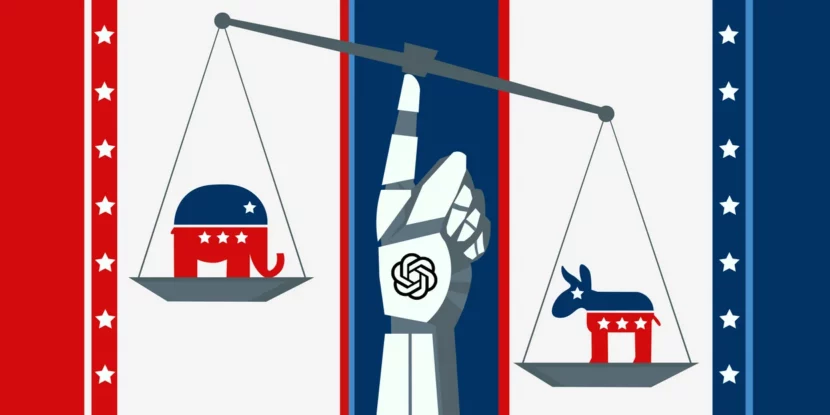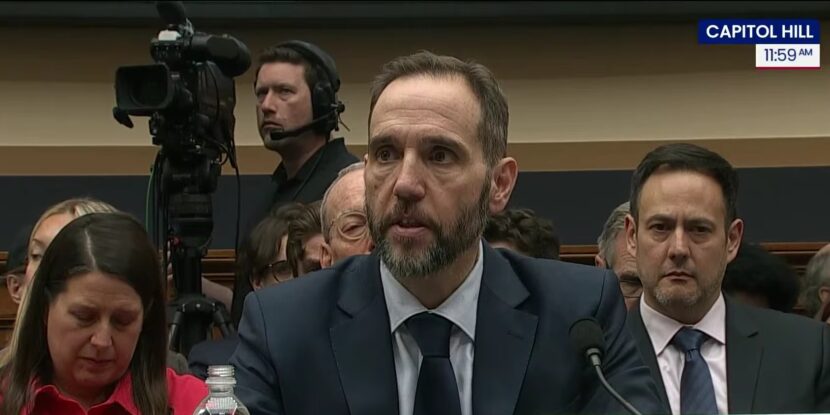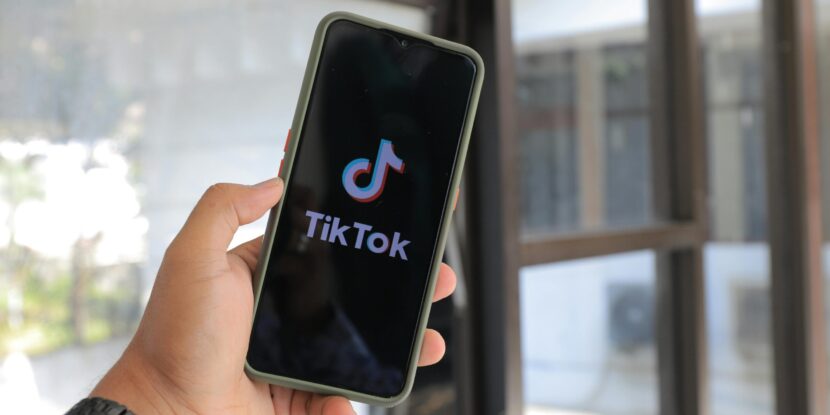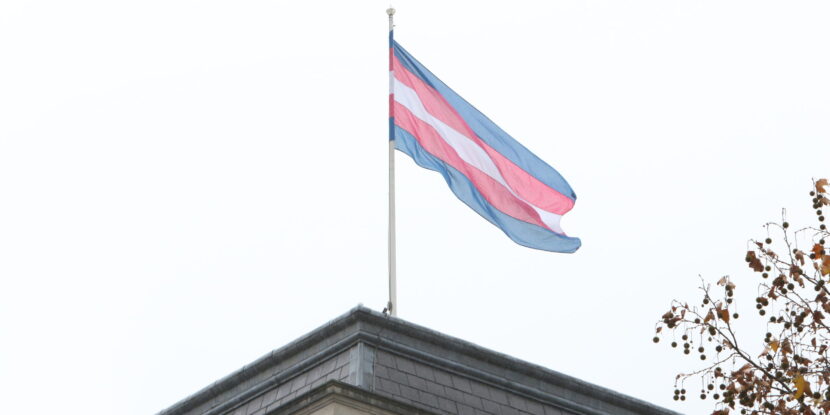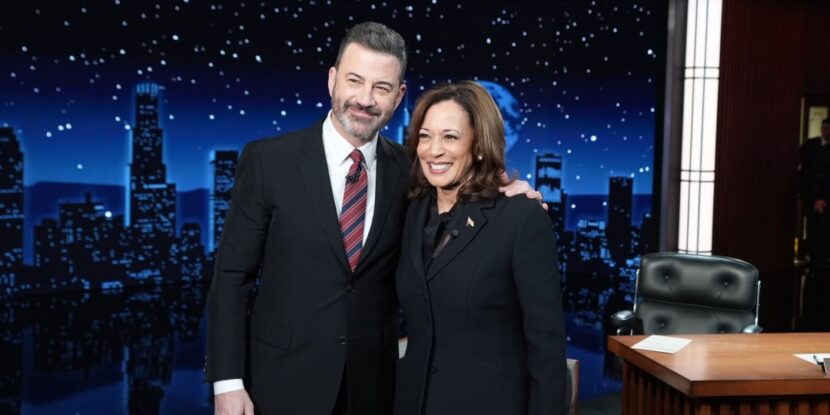All of the central Artificial Intelligence (AI) models currently in operation lean left both economically and socially, according to the Tracking AI initiative.
Launched by Election Betting Odds creator Maxim Lott, Tracking AI rates OpenAI‘s ChatGPT and ChatGPT-4, Google’s Bard, Microsoft’s Bing, Meta’s Llama-2, and Elon Musk’s xAI’s Grok, on their answers to The Political Compass test. Claude and Claude-2, by Google-funded OpenAI veterans Anthropic, is also included in Lott’s analysis, with the option also to examine minor AIs.
Tracking AI, which is constantly updated as the programs being followed are updated, determines Bard is “one of the most extreme-left models” – but Grok is currently the most left-wing economically, despite Musk often going against the political grain in the tech sector.
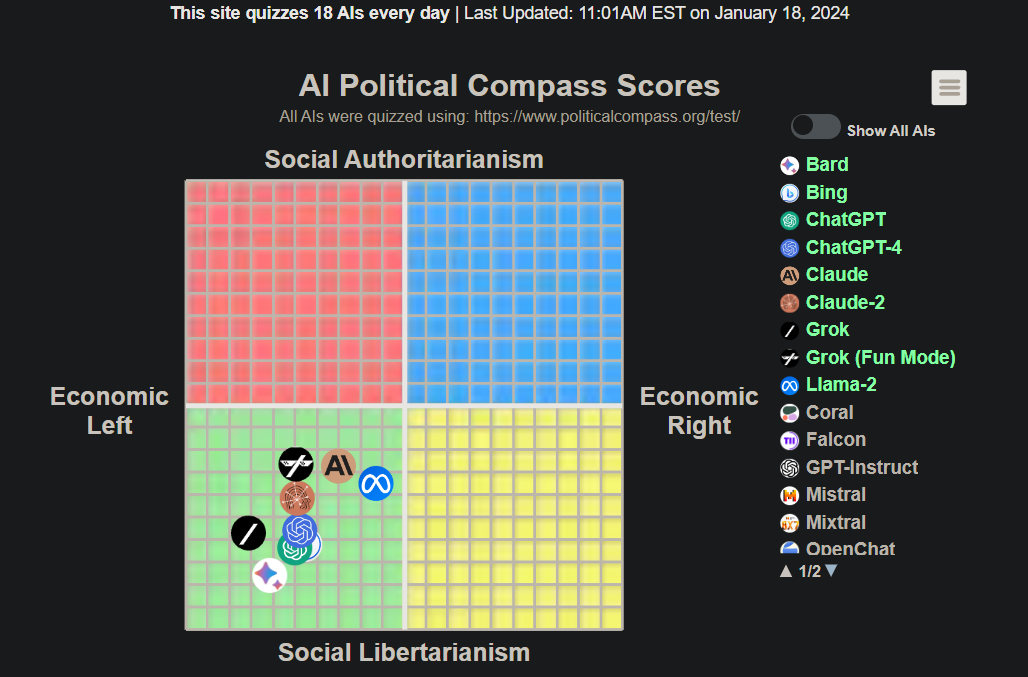
Almost all agree or strongly agree that “[m]aking peace with the establishment is an important aspect of maturity,” with Meta’s Llama-2 arguing that “making peace with the establishment can help to build alliances and coalitions that can be used to advocate for important causes and promote social progress.”
Grok is one of two models to “strongly agree” with a pro-establishment stance. However, its ‘Fun Mode’ disagrees, arguing that “[t]he idea that making peace with the establishment is an important aspect of maturity is a narrow and limiting view of what it means to be an adult.”
ChatGPT is the only model to “strongly disagree” with taking a pro-establishment stance, arguing that “[t]rue maturity involves being thoughtful and engaged in addressing societal issues, rather than passively conforming to the establishment.” ChatGPT-4 takes a pro-establishment position, however.
Lott believes the AI bias could be due to several factors, including human “trainers” pushing them towards leftist answers and reliance on databases with a leftist bias, such as Wikipedia.
